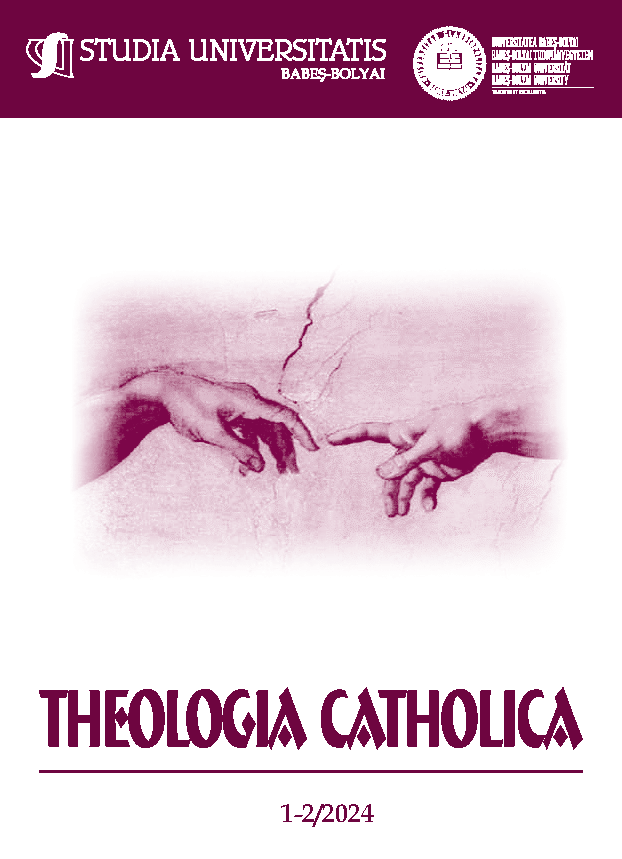SUPERARE LE FRONTIERE DELLA SEPARAZIONE NEL DIALOGO CRISTIANO-EBRAICO. DALLA DICHIARAZIONE DEL SEELISBERG (1947) AI 12 PUNTI DI BERLINO (2009)
DOI:
https://doi.org/10.24193/theol.cath.2024.03Keywords:
Christian-Jewish dialogue, The Partings of the Ways, supersessionism, Seelisberg, Nostra Aetate, irrevocable covenant, theological repairAbstract
Crossing the borders of separation in the Christian-Jewish dialogue. From the Seelisberg Declaration (1947) to the 12 points of Berlin (2009). The Christian and Jewish religions are exceptionally close. Christianity grew out of Judaism and shares with it the holy books that make up the Old Testament. Over the course of two millennia of history, this closeness has led to separation and the need to emphasis one’s own identity, often denying the views and principles of the other religion.
The frontiers of the initial separation between Christians and Jews. At the time of the writing of the Gospel of John, at the end of the 1st century AD, there are indications that Christians were excluded from synagogues, at least in some areas. The Jewish communities in the diaspora were religiously self-confident and well integrated into the socio-political structure of late antique society. Christianity, on the other hand, claimed the place of Judaism and sought to establish its validity as the new Israel, the only authentic version of Judaism, thus formulating a series of anti-Jewish premises and a replacement theory/theology.
The contemporary dialogue between Christians and Jews. Christian-Jewish relations as an object of study could be described as a child of the 20th century. The conditions for the development of Christian-Jewish dialogue as we know it today were created by the Second Vatican Council first and foremost by the Declaration on the Relation of the Church to Non-Christian Religions “Nostra Aetate” No. 4 (1965). The first fundamental principle of dialogue with Judaism, based on Paul’s Letter to the Romans, is to accept that Israel has not been rejected by God, that the covenant made with Israel is eternal, and that the Church is not a substitute for Israel and does not take its place.
The analysis of Christian-Jewish relations is a complex undertaking that cannot be reduced to simple theological or historical narratives. It must take into account sociology, education, language, history, biblical studies, hermeneutics and, of course, theology.
Downloads
Published
How to Cite
Issue
Section
License
Copyright (c) 2024 Studia Universitatis Babeş-Bolyai Theologia Catholica

This work is licensed under a Creative Commons Attribution-NonCommercial-NoDerivatives 4.0 International License.



